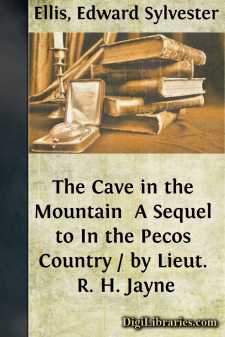Categories
- Antiques & Collectibles 13
- Architecture 36
- Art 48
- Bibles 22
- Biography & Autobiography 816
- Body, Mind & Spirit 145
- Business & Economics 28
- Children's Books 17
- Children's Fiction 14
- Computers 4
- Cooking 94
- Crafts & Hobbies 4
- Drama 346
- Education 58
- Family & Relationships 59
- Fiction 11834
- Foreign Language Study 3
- Games 19
- Gardening 17
- Health & Fitness 34
- History 1378
- House & Home 1
- Humor 147
- Juvenile Fiction 1873
- Juvenile Nonfiction 202
- Language Arts & Disciplines 89
- Law 16
- Literary Collections 686
- Literary Criticism 179
- Mathematics 13
- Medical 41
- Music 40
- Nature 179
- Non-Classifiable 1768
- Performing Arts 7
- Periodicals 1453
- Philosophy 66
- Photography 2
- Poetry 897
- Political Science 203
- Psychology 45
- Reference 154
- Religion 516
- Science 126
- Self-Help 85
- Social Science 82
- Sports & Recreation 34
- Study Aids 3
- Technology & Engineering 59
- Transportation 23
- Travel 463
- True Crime 29
Our website is made possible by displaying online advertisements to our visitors.
Please consider supporting us by disabling your ad blocker.
The Lost Trail
Description:
Excerpt
CHAPTER I
AN ENEMY IN A TREE
One afternoon in early spring, Jack Carleton, a sturdy youth of seventeen years, was following a clearly-marked trail, leading through the western part of Kentucky toward the Mississippi river. For many a mile he followed the evenly spaced tracks made by a horse on a walk, the double impressions being a trifle more than three feet apart.
"Helloa!" exclaimed, Jack, when he looked at the earth again and observed that the tracks had taken a new form, with nearly eight feet between them. "Otto has forced the colt to a trot. He must be in a hurry, or he thinks I am fond of traveling."
Thus far the lusty young Kentuckian felt no misgiving, but within fifty yards the trail underwent the startling change—the footprints being separated by more than three yards now.
"My gracious," muttered the boy, coming to a full stop, "something is wrong: Otto would not have put the horse on a dead run if he hadn't been scared."
Jack Carleton proved his training by the keenness and quickness with which he surveyed his surroundings. The woods were on every hand, but they were open and free from undergrowth, so that he gained an extensive view.
As he advanced with vigorous steps along the winding path, his eyes sometimes rested on the pendulous branches of the majestic elm, a small purple flower here and there still clinging to the limbs and resisting the budding leaves striving to force it aside; the massive oak and its twisted, iron limbs; the pinnated leaves of the hickory, whose solid trunk, when gashed by the axe, was of snowy whiteness; the pale green spikes and tiny flowers of the chestnut; the sycamore, whose spreading limbs found themselves crowded even in the most open spaces, with an occasional wild cherry or tulip, and now and then a pine, whose resinous breath brooded like a perennial balm over the vast solitude.
Jack Carleton was arrayed in the coarse, serviceable garb of the border: heavy calf-skin shoes, thick trousers, leggings and coat, the latter short and clasped at the waist by a girdle, also of woolen and similar to that of the modern ulster. The cap was of the same material and, like the other garments, had been fashioned and put together by the deft hands of the mother in Kentucky. Powder-horn and bullet-pouch were suspended by strings passing over alternate sides of the neck and a fine flint-lock rifle, the inseparable companion of the Western youth, rested on the right shoulder, the hand grasping it near the stock.
Jack's hasty survey failed to reveal any cause for fear, and he resumed his pursuit, as it may be termed. The quick glances he cast on the ground in front showed, in every instance, that the horse he was following was fleeing at the same headlong pace. His rider had spurred him to a dead run, at which gait he had shot underneath the limbs of the trees at great risk to himself as well as to his rider.
The trail was broad, for loaded horses had passed in both directions, and wild animals availed themselves of it more than once in making their pilgrimages to the Mississippi, or in migrating from one part of the country to the other....












